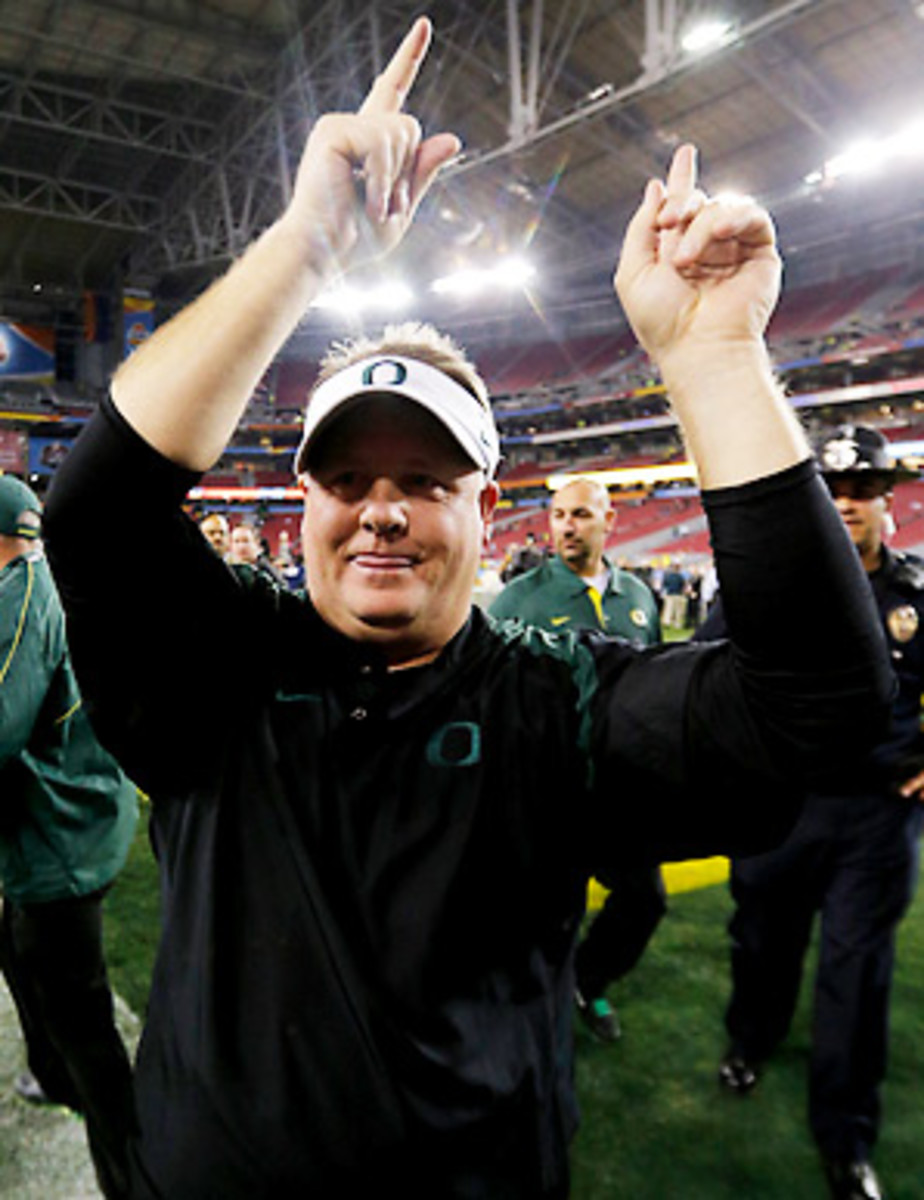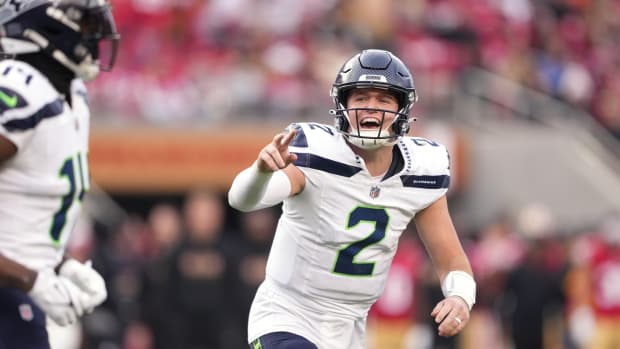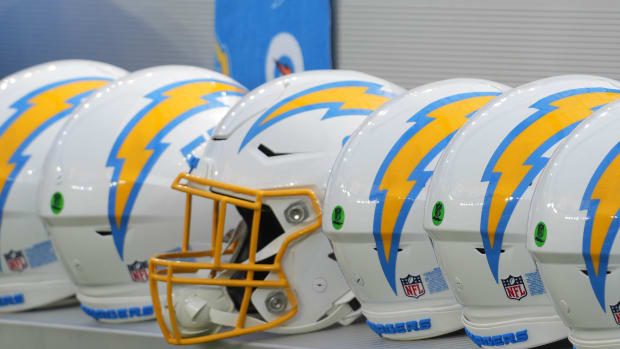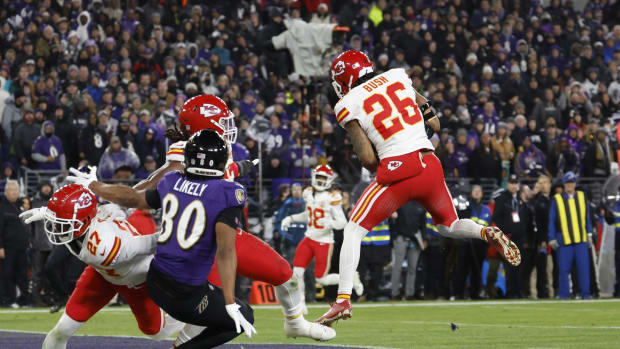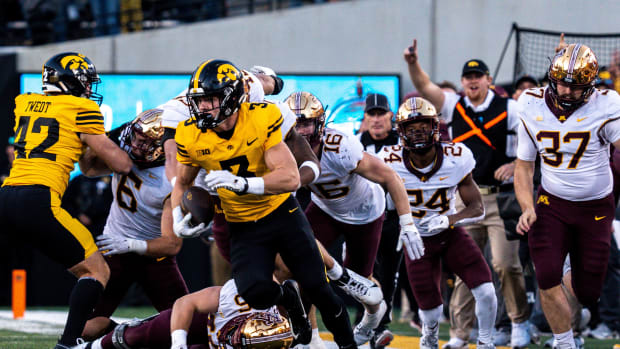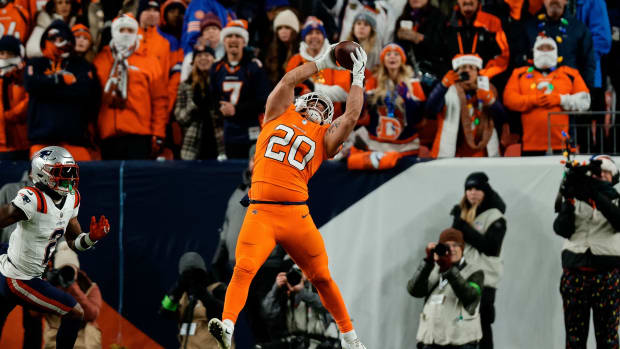Kelly's move from Pacific Northwest will shake up traditional East

Under Chip Kelly's watch, Oregon has finished in the top five in the nation on offense for the last three years.
Ric Tapia/Icon SMI
I know the Philadelphia Eagles hired Chip Kelly to build a complete program and his task is to do more than fix an offense that has lost its way. But I still think nobody had a worse day Wednesday than Jim Haslett, Perry Fewell and Monte Kiffin, the three defensive coordinators in the NFC East who now all must prepare to face Kelly's offense twice a year.
Kelly's knack for offensive innovation is being counted on to revitalize the last-place Eagles, who have been grasping for a sustainable offensive identity for at least two years now. But it could also serve to alter the prevailing mindset in one of the NFL's most tradition-bound divisions, the NFC East, once home to legendary coaches named Landry, Gibbs and Parcells.
You can make a strong case that Washington truly began the division's offensive transformation last season, when it gave up a tidy ransom to draft Robert Griffin III and debut him in the read-option offense that helped him win a Heisman Trophy at Baylor. The move did resurrect the Redskins as contenders, earning upstart Washington its first division title since 1999, and creating almost a cult-like following around RGIII, who became not only the division's biggest draw but also its biggest question mark as well, thanks to his controversial late-season/playoff game knee injury.
But now here comes Kelly, with his speed-happy, run-option spread offense injecting even more juice into a division that once was known for believing defense and running games were the proven and predominant way to thrive once the weather turned colder and the playoff drive was underway. To be sure, both the Giants' Eli Manning and the Cowboys' Tony Romo have led passing-first offenses for a while now, but Kelly's arrival ups the ante on that side of the ball, and the rest of the NFC East might well wind up looking and playing more like the Eagles in order to beat the Eagles. If successful in Philadelphia, Kelly could force opponents to either build defenses to specifically stop his warp-speed offense, or mimic it. There's a reaction inspired either way.
Kelly's brand of the spread offense can't be just picked up and transferred from Oregon to the NFL lock, stock and barrel, of course. There's explosive playmaking talent to work with on the Eagles roster, with running backs LeSean McCoy and Bryce Brown, and quick, elusive receivers DeSean Jackson and Jeremy Maclin. But we'll see if Kelly's starting quarterback is still on a college campus somewhere (Geno Smith anyone?); if he'll try to make do in 2013 with incumbent Nick Foles, who he once raved about during their days competing against each other in the Pac-12; or even consider a trade for the ever-popular Tim Tebow? Michael Vick remains the other piece of the QB puzzle that must still play out in Philadelphia, though he was not expected to return in 2013.
BURKE: KELLY HAS LOTS OF OPTIONS AT QB
Kelly's offense at Oregon relied on mobile quarterbacks who can also throw the ball, which is not necessarily the same as running quarterbacks. League insiders who know his system say he won't be a slave to any specific style of quarterback per se, but that mobility is key, even if it's mobility within the confines of the pocket, or taking snaps in the shotgun formation.
If anything, Steve Spurrier's failed two-year stay in Washington 10 years ago is a cautionary tale for how quickly spread-style offenses and the NFL can be blended together. Substantially smaller game-day rosters, a lack of the inferior opponents often found at the collegiate level, and the degree to which every NFL roster features some of the speed that made the Ducks offense go are just a few of the leveling effects Kelly will encounter in his new league.
But there are plenty of NFL coaches and club executives who believe Kelly will be savvy and flexible enough to adapt his style of up-tempo, wide-open offense to win in the NFL, and that its impact will spread within the league as other teams witness its effectiveness. As one club official told me recently, "If the Patriots are already using some of Kelly's ideas, you know he's probably on the right track.''
I'm pretty sure Kiffin, the longtime NFL defensive coordinator just hired by Dallas to replace the fired Rob Ryan, isn't clicking his heels at the news that Kelly reconsidered and accepted the Eagles offer in the past 24 hours. Kiffin just did a stint as defensive coordinator at USC on his son, Lane's staff. Kelly's Oregon Ducks averaged 50 points and 601 yards of offense against Kiffin's Trojans. Welcome to Dallas, Monte.
And if you're Giants defensive coordinator Fewell, in the span of less than a year, you've had Washington draft Griffin and Philadelphia hire Kelly, greatly complicating at least four of your game plans each and every season. Even Washington's Haslett now gets a taste of what the other three NFC East teams had to deal with this season.
And before the Kelly era in Philadelphia has really even begun, let's dispel one misconception that has already sprung up around him. According to sources who have watched him work up close, Kelly is anything but the Spurrier-like offensive genius who cares little about the other parts of the game. He's known as a tough guy, and one who can be demanding and exacting on his players, at every position. He wants his team to play smart and fast-paced at all times, and he holds people accountable for mistakes. Far from being a warm and fuzzy "player's coach,'' Kelly takes a tough-minded approach to the game.
That should position him quite well in the rough-and-tumble NFC East, which plays a tough, physical brand of football and believes in rushing the passer as one of its primary tenets for success. The Giants, Cowboys and Redskins have pass rushers, and the Eagles have had them in the recent past, if not in 2012. Those who know him say Kelly's confidence and go-for-it attitude will permeate his entire roster, and reinvigorate an Eagles organization that largely became too staid and predictable in the late years of the Andy Reid era.
It's hard to know if Kelly's circuitous route to Philadelphia -- see his on-again, off-again courtship by the Eagles in the past two weeks -- will have any lasting effect, or play a part in setting a tone of indecisiveness early on in his tenure. He seemed conflicted about joining the NFL for the first time roughly 12 days ago, and perhaps we'll never know what changed in his thinking.
But the Eagles clearly got their man, and have the right to feel their long and at times puzzling coaching search process was vindicated in the end. Kelly's offense does seem to be where the NFL is headed in many respects, and if he's as adaptable to the parts of it that don't fit in professional football as others say he'll be, Philadelphia might find itself suddenly ahead of the curve in the NFC East.
The quarterback question must be settled, of course, but on the surface the Eagles do seem an ideal match for Kelly's background. At Oregon, his fast-paced, high-pressure offense glorified speed above all else, and the consensus is Philadelphia's roster might feature more of it than any other NFL team. A fast break back into playoff contention is what the Eagles are seeking.
It's a copy-cat league, and if Kelly's offense takes the floundering Eagles to the postseason in 2013, there will be imitators, starting perhaps within an NFC East that once was known as a bastion of football tradition. But the game has changed, and Kelly's hiring in Philly just further underlines how offensive-driven the NFL has become. He wasn't the hottest name on this year's coaching carousel because he brought a new way to look at defense to football. The Eagles wanted Kelly desperately because passing and points lead the way back to the playoffs.
The playoffs were once a perennial reality in Philadelphia, but not lately. That change prompted Wednesday's change. Enter Kelly, college football's latest offensive genius. And come to think of it, trying to identify the next big thing in the NFL is as traditional as it gets.
































